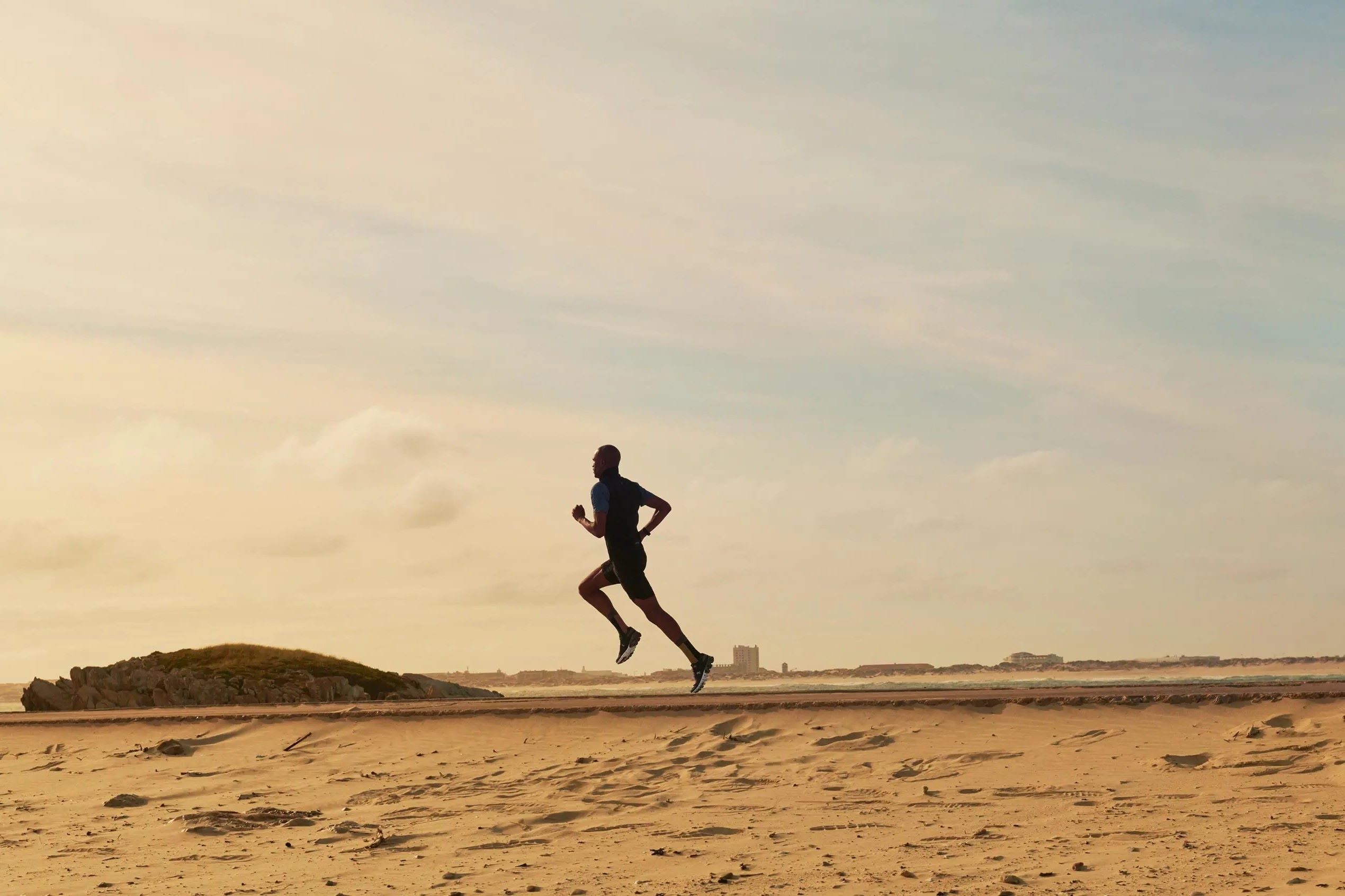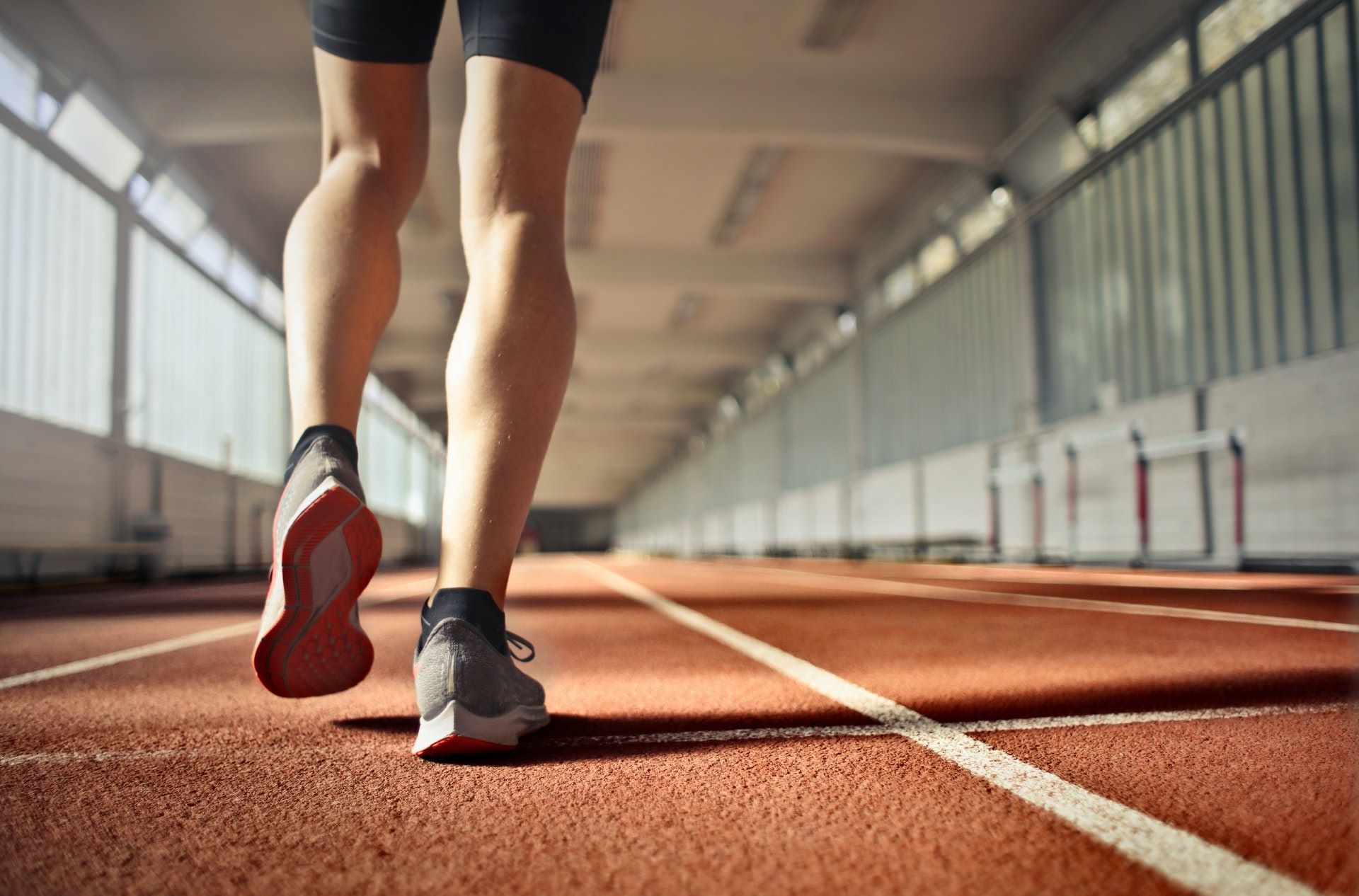Home>Health & Nutrition>Understanding And Preventing Runners’ Diarrhea


Health & Nutrition
Understanding And Preventing Runners’ Diarrhea
Published: February 25, 2024
Learn how to prevent runners' diarrhea with proper nutrition and health practices. Understand the causes and find effective solutions for this common issue. Improve your running experience with these tips.
(Many of the links in this article redirect to a specific reviewed product. Your purchase of these products through affiliate links helps to generate commission for Therunningadvisor.com, at no extra cost. Learn more)
Table of Contents
Introduction
Picture this: You're lacing up your running shoes, feeling the adrenaline rush as you prepare for a refreshing jog. As you hit the pavement, the last thing on your mind is an unexpected bout of diarrhea. Yet, for many runners, this unwelcome experience is all too familiar. Runners' diarrhea, also known as "runner's trots," is a distressing condition that can turn a pleasant run into a frantic search for the nearest restroom.
While running offers numerous health benefits, such as improved cardiovascular fitness and stress relief, it can also trigger gastrointestinal distress in some individuals. The phenomenon of runners' diarrhea is not uncommon, and its occurrence can be attributed to various factors, including physiological changes during exercise, dietary choices, and pre-race nerves.
Understanding the underlying causes and potential preventive measures for runners' diarrhea is crucial for both seasoned athletes and beginners. By shedding light on this often overlooked topic, we can empower runners to take proactive steps to minimize the risk of experiencing this disruptive condition.
In this comprehensive guide, we will delve into the intricate details of runners' diarrhea, exploring its causes, symptoms, prevention strategies, and treatment options. Whether you're a dedicated marathon runner or someone who enjoys a casual jog, the insights shared here will equip you with the knowledge to navigate the potential challenges of runners' diarrhea and ensure that your running experience remains enjoyable and uninterrupted.
Causes of Runners' Diarrhea
Runners' diarrhea can be attributed to a combination of physiological, dietary, and psychological factors. Understanding these underlying causes is essential for mitigating the risk of experiencing this unsettling condition.
-
Gastrointestinal Motility: During exercise, blood flow is redirected from the gastrointestinal tract to the working muscles, leading to a decrease in intestinal blood flow. This can result in an acceleration of gastrointestinal motility, causing food to move more rapidly through the digestive system. The increased motility, combined with the jostling motion of running, can contribute to the onset of diarrhea.
-
Nervous System Stimulation: Physical activity stimulates the sympathetic nervous system, which can lead to changes in gastrointestinal function. The release of stress hormones, such as adrenaline, can impact intestinal contractions and secretion, potentially triggering diarrhea during or after a run.
-
Dietary Choices: Certain foods and beverages, particularly those high in fiber, fat, or artificial sweeteners, can exacerbate gastrointestinal distress during exercise. Consuming large meals or foods that are known to be triggers for some individuals, such as spicy dishes or dairy products, can increase the likelihood of experiencing runners' diarrhea.
-
Hydration Status: Inadequate hydration before, during, or after a run can disrupt normal gastrointestinal function. Dehydration can lead to decreased blood volume and reduced blood flow to the intestines, potentially resulting in diarrhea and gastrointestinal discomfort.
-
Pre-Race Nerves: Anxiety and pre-race jitters can stimulate the release of stress hormones, which may impact gastrointestinal function. Nervousness before a race or intense workout can contribute to gastrointestinal symptoms, including diarrhea, as the body responds to the perceived stress.
-
Individual Sensitivities: Each runner's gastrointestinal system responds differently to the physical demands of running. Some individuals may be more susceptible to the effects of exercise-induced changes in gastrointestinal motility, making them more prone to experiencing runners' diarrhea.
By recognizing these multifaceted causes, runners can take proactive measures to minimize the risk of developing this uncomfortable condition. Implementing targeted strategies, such as modifying dietary choices, optimizing hydration, and managing pre-race nerves, can significantly reduce the likelihood of experiencing runners' diarrhea, allowing individuals to fully enjoy the physical and mental benefits of running.
Symptoms and Effects
Runners' diarrhea can manifest with a range of distressing symptoms that can significantly impact a runner's experience and performance. Understanding these symptoms is crucial for recognizing and addressing the condition effectively.
Symptoms
-
Urgency: One of the hallmark symptoms of runners' diarrhea is a sudden and urgent need to have a bowel movement during or after a run. This intense urge can be disruptive and distressing, often necessitating an immediate halt to the exercise.
-
Abdominal Discomfort: Many runners experience cramping, bloating, or discomfort in the abdominal region during an episode of runners' diarrhea. This discomfort can range from mild to severe, contributing to the overall unpleasantness of the experience.
-
Loose Stools: Diarrhea is characterized by loose, watery stools, which can occur with increased frequency during or after a run. The consistency and urgency of bowel movements may vary, but the presence of loose stools is a common indicator of runners' diarrhea.
-
Gas and Bloating: Some individuals may also experience increased gas production and bloating, adding to the discomfort and disruption caused by runners' diarrhea.
Effects
The effects of runners' diarrhea extend beyond the immediate physical symptoms, impacting various aspects of a runner's well-being and performance.
-
Disruption of Training: Frequent episodes of runners' diarrhea can disrupt a runner's training regimen, leading to missed workouts and decreased consistency in their exercise routine. This can hinder progress and impact overall fitness goals.
-
Psychological Impact: The fear and anxiety of experiencing runners' diarrhea can create psychological distress, affecting a runner's confidence and enjoyment of the activity. The anticipation of gastrointestinal discomfort can detract from the mental benefits of running.
-
Nutritional Imbalance: Prolonged or recurrent runners' diarrhea can lead to imbalances in hydration and electrolytes, potentially impacting overall nutritional status and physical well-being.
-
Performance Limitations: The physical discomfort and urgency associated with runners' diarrhea can limit a runner's performance, hindering their ability to achieve optimal results during training or competitive events.
By recognizing the symptoms and understanding the broader effects of runners' diarrhea, individuals can take proactive steps to address and mitigate the impact of this condition. Implementing targeted strategies, such as modifying pre-run dietary choices, optimizing hydration, and managing stress, can help minimize the likelihood of experiencing runners' diarrhea and its associated effects.
Prevention Strategies
Preventing runners' diarrhea requires a multifaceted approach that addresses the physiological, dietary, and psychological factors that contribute to this condition. By implementing targeted strategies, runners can significantly reduce the likelihood of experiencing gastrointestinal distress during or after their runs.
Hydration and Nutrition
Maintaining optimal hydration and making mindful dietary choices are fundamental pillars of preventing runners' diarrhea. Adequate hydration before, during, and after a run is essential for supporting normal gastrointestinal function. It is recommended to consume fluids regularly throughout the day and to hydrate adequately before embarking on a run. Additionally, avoiding large meals or foods known to trigger gastrointestinal distress, such as high-fiber or high-fat items, can help minimize the risk of experiencing runners' diarrhea. Opting for easily digestible, low-fiber foods and incorporating moderate amounts of carbohydrates and lean proteins can support gastrointestinal comfort during exercise.
Pre-Run Fueling
Careful consideration of pre-run nutrition is crucial for preventing gastrointestinal distress. Consuming a light, easily digestible meal or snack 1-2 hours before a run can provide the necessary energy without overloading the digestive system. Avoiding foods that are known to trigger gastrointestinal discomfort, such as spicy dishes or high-fat meals, can help minimize the risk of experiencing runners' diarrhea. Experimenting with different pre-run fueling strategies and identifying foods that are well-tolerated can contribute to a more comfortable running experience.
Gradual Adaptation
Gradually adapting the body to the physical demands of running can help minimize the risk of gastrointestinal distress. Incrementally increasing the intensity and duration of runs allows the body to acclimate to the physiological changes associated with exercise, potentially reducing the likelihood of experiencing runners' diarrhea. By gradually building endurance and allowing the gastrointestinal system to adapt to the demands of running, individuals can mitigate the risk of gastrointestinal discomfort during exercise.
Stress Management
Managing pre-run nerves and anxiety is essential for preventing runners' diarrhea. Engaging in relaxation techniques, such as deep breathing, meditation, or visualization, can help alleviate pre-run stress and reduce the impact of nervousness on gastrointestinal function. Additionally, establishing a consistent pre-run routine and mentally preparing for the exercise can contribute to a more relaxed and comfortable running experience, potentially minimizing the risk of gastrointestinal distress.
Post-Run Recovery
Implementing effective post-run recovery practices can support gastrointestinal health and minimize the risk of experiencing runners' diarrhea. Consuming a balanced post-run meal or snack that includes carbohydrates for replenishing glycogen stores and proteins for muscle recovery can support overall digestive comfort. Additionally, prioritizing hydration and electrolyte replenishment after a run can help maintain optimal gastrointestinal function and minimize the risk of post-exercise diarrhea.
By integrating these prevention strategies into their running routine, individuals can take proactive steps to minimize the likelihood of experiencing runners' diarrhea. Recognizing the importance of hydration, nutrition, gradual adaptation, stress management, and post-run recovery can empower runners to enjoy a more comfortable and uninterrupted running experience.
Treatment Options
Addressing runners' diarrhea involves targeted approaches to alleviate symptoms and support gastrointestinal health. While prevention is paramount, having effective treatment options can provide relief and minimize the impact of this condition on a runner's overall well-being.
Hydration and Electrolyte Balance
Prioritizing hydration is crucial for managing runners' diarrhea. Replenishing fluids lost during episodes of diarrhea is essential for preventing dehydration and supporting overall recovery. In addition to water, consuming electrolyte-rich beverages or oral rehydration solutions can help restore electrolyte balance, particularly if diarrhea has been prolonged or severe. Maintaining optimal hydration levels can aid in alleviating gastrointestinal discomfort and promoting recovery.
Dietary Modifications
Adjusting dietary choices can play a significant role in managing runners' diarrhea. Opting for bland, easily digestible foods can help soothe the gastrointestinal tract and minimize further irritation. Incorporating foods that are gentle on the stomach, such as bananas, rice, applesauce, and toast (BRAT diet), can provide relief from diarrhea symptoms. Avoiding spicy, high-fiber, or fatty foods during the recovery period can support digestive comfort and aid in the normalization of bowel movements.
Probiotics and Gut Health Support
Introducing probiotics, either through dietary sources or supplements, can aid in restoring gut health and promoting a balanced intestinal microbiota. Probiotics containing strains such as Lactobacillus and Bifidobacterium have been associated with improved gastrointestinal function and may help alleviate symptoms of runners' diarrhea. Additionally, consuming fermented foods, such as yogurt, kefir, and sauerkraut, can provide natural sources of beneficial bacteria to support digestive health.
Rest and Recovery
Allowing the body adequate rest and recovery time is essential for managing runners' diarrhea. Taking a break from intense physical activity can help reduce the stress on the gastrointestinal system and facilitate the healing process. Prioritizing rest, relaxation, and gentle movement, such as walking or light stretching, can support overall recovery and minimize the risk of exacerbating gastrointestinal symptoms.
Medical Evaluation
In cases where runners' diarrhea persists or is accompanied by concerning symptoms, seeking medical evaluation is advisable. A healthcare professional can assess the individual's overall health, identify potential underlying causes, and recommend targeted interventions to address gastrointestinal distress. Diagnostic tests, such as stool analysis or blood work, may be conducted to rule out underlying conditions and guide appropriate treatment strategies.
By integrating these treatment options into their approach to managing runners' diarrhea, individuals can effectively alleviate symptoms, support gastrointestinal health, and facilitate a smoother recovery process. Recognizing the importance of hydration, dietary modifications, probiotics, rest, and medical evaluation can empower runners to address this condition comprehensively and resume their running activities with confidence.
Conclusion
In conclusion, runners' diarrhea is a multifaceted condition that can significantly impact the running experience and overall well-being of individuals. The intricate interplay of physiological, dietary, and psychological factors contributes to the onset and exacerbation of this distressing condition. By understanding the underlying causes, recognizing the symptoms and effects, and implementing targeted prevention strategies and treatment options, runners can navigate the challenges of runners' diarrhea with greater confidence and resilience.
It is evident that proactive measures, such as optimizing hydration, making mindful dietary choices, gradually adapting the body to the demands of running, managing pre-run nerves, and prioritizing post-run recovery, can significantly reduce the likelihood of experiencing runners' diarrhea. By integrating these strategies into their running routine, individuals can mitigate the risk of gastrointestinal distress and enjoy a more comfortable and uninterrupted running experience.
Furthermore, the importance of addressing runners' diarrhea comprehensively, including hydration and electrolyte balance, dietary modifications, probiotics, rest, and seeking medical evaluation when necessary, cannot be overstated. These targeted approaches not only provide relief from symptoms but also support overall gastrointestinal health and facilitate a smoother recovery process.
Empowering runners with the knowledge and tools to prevent, manage, and address runners' diarrhea is essential for fostering a positive and sustainable running experience. By recognizing the impact of this condition and taking proactive steps to mitigate its effects, individuals can approach their running endeavors with confidence, resilience, and a renewed sense of enjoyment.
Ultimately, by shedding light on the complexities of runners' diarrhea and equipping individuals with comprehensive insights and strategies, we can foster a running community that thrives on physical and mental well-being, enabling every runner to pursue their passion for running with comfort, confidence, and vitality.












